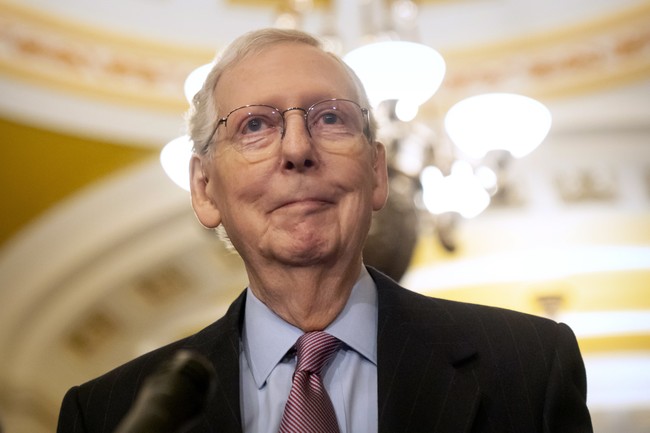Budget Battles: GOP Aims to Advance Trump's Agenda
Discover the intense budget debates unfolding in the US Congress as Republicans and Democrats clash over deep cuts and border security funding amidst Trump's policy directives.
Published February 22, 2025 - 00:02am

Image recovered from washingtonexaminer.com
The United States Senate recently cleared a significant hurdle in advancing a budget resolution aimed at funding border security, immigration enforcement, and defense initiatives. This development marks a critical step in the Republican party's efforts to align with President Donald Trump's legislative agenda. The budget resolution, passed by a slim 52-48 margin, encompasses an allocation of approximately $340 billion, targeting $175 billion for border security and $150 billion for defense spending.
This contentious resolution surfaced amid a marathon voting session, colloquially known as a 'vote-a-rama,' where Democrats introduced numerous amendments. Many of these amendments focused on topics not directly related to the budget, highlighting core Democratic economic concerns such as tax cuts that favor wealthy Americans and impacts on essential services like Medicaid.
The Republican leadership in the Senate, however, sidestepped the immediate inclusion of tax reforms, opting instead to prioritize these issues for later in the year. Democrats, led by Senate Minority Leader Chuck Schumer, New York, have criticized this approach, accusing Republicans of prioritizing the interests of billionaires over those of working-class Americans.
In a parallel development, the House of Representatives is prepared to vote on its own budget framework. This version is more in line with President Trump's vision for a comprehensive bill that includes tax cuts. However, intraparty disagreements are apparent as some centrist Republicans in the House express unease with the proposed $2 trillion in spending cuts crafted with the conservative Freedom Caucus. This reflects broader GOP struggles to consolidate their fiscal policy direction amid rising federal deficits.
President Trump has expressed support for the House's more extensive budget plan while cautiously endorsing the Senate's narrower approach as a fallback measure. His administration continues to call for significant enhancements in border security, potentially leading to controversial policy decisions such as the large-scale deportations contested by civil rights groups.
The debate over budget allocations has exposed deep divisions not only between the two major parties but also within the Republican ranks themselves. Sen. Rand Paul, Kentucky, stood out as the sole Republican voting against the budget resolution, citing concerns over insufficient spending cuts in the face of the nation's expanding deficits. He argues for more aggressive fiscal responsibility, warning that without substantial offsets, the new budget could exacerbate the country's financial imbalance.
Meanwhile, in Congress, discussions touch on critical elements of fiscal policy, including Medicaid and Medicare reforms. Some Republican members are advocating for cuts in these areas to offset increased spending elsewhere—a move fraught with electoral risks given the programs' importance to seniors and low-income households.
As this fiscal tangle unfolds, both chambers of Congress face intense scrutiny from the public and political analysts alike. With the need to reconcile differences between the Senate and House versions of the budget bill, the legislative process remains in a precarious balance. The outcome could significantly affect the implementation of Trump's policy agenda and the political landscape heading into future elections.






